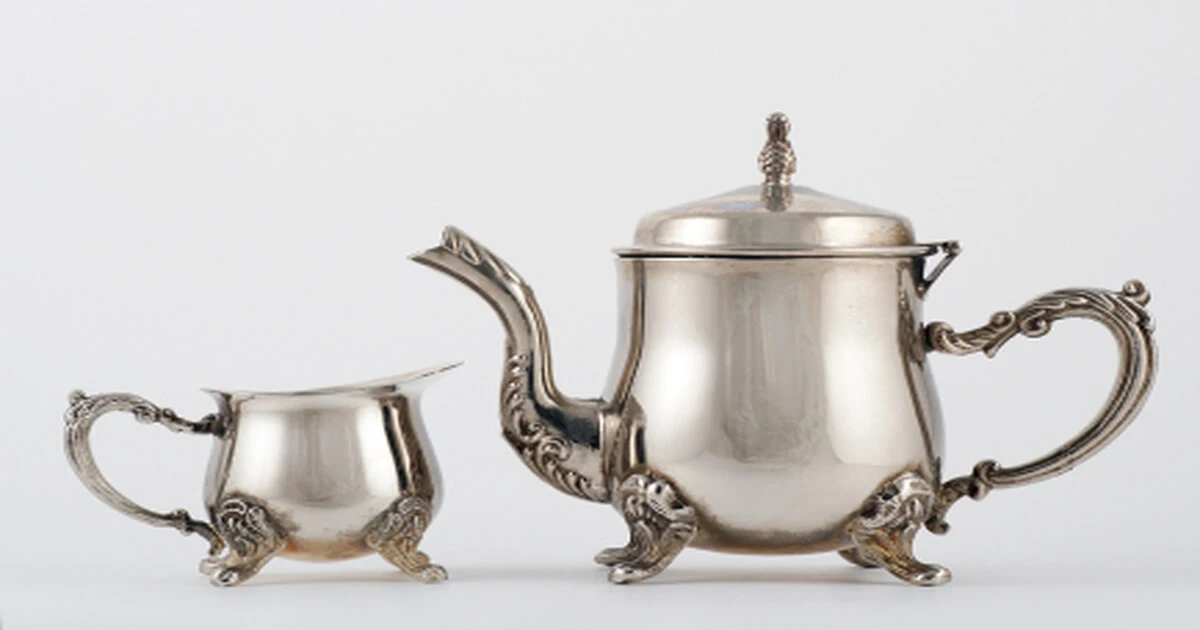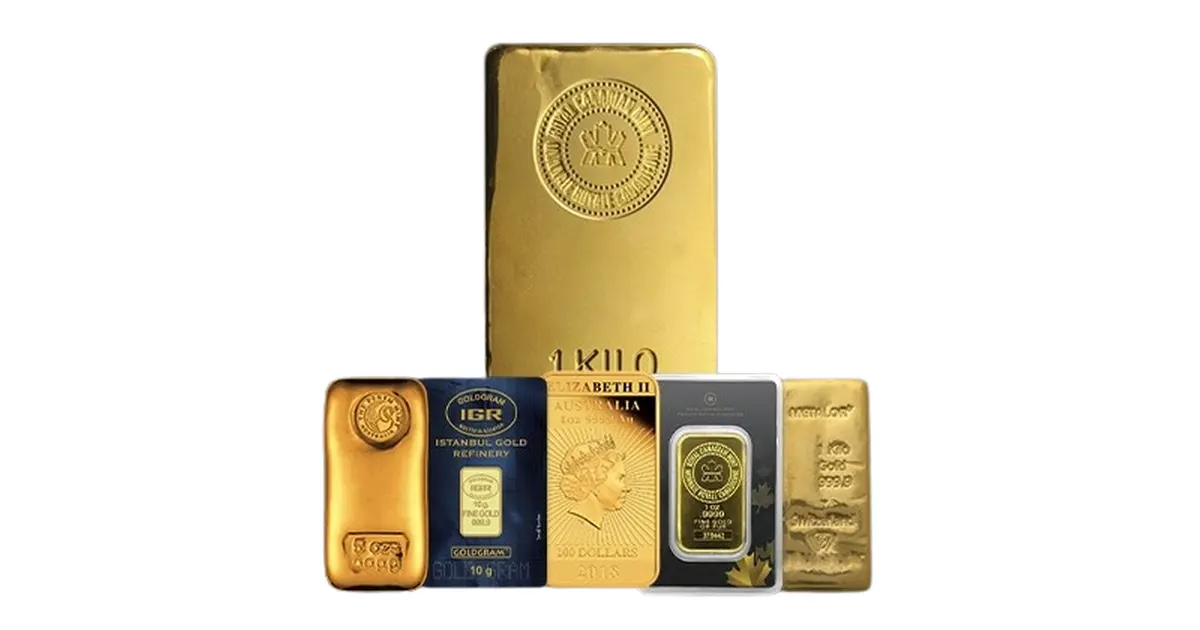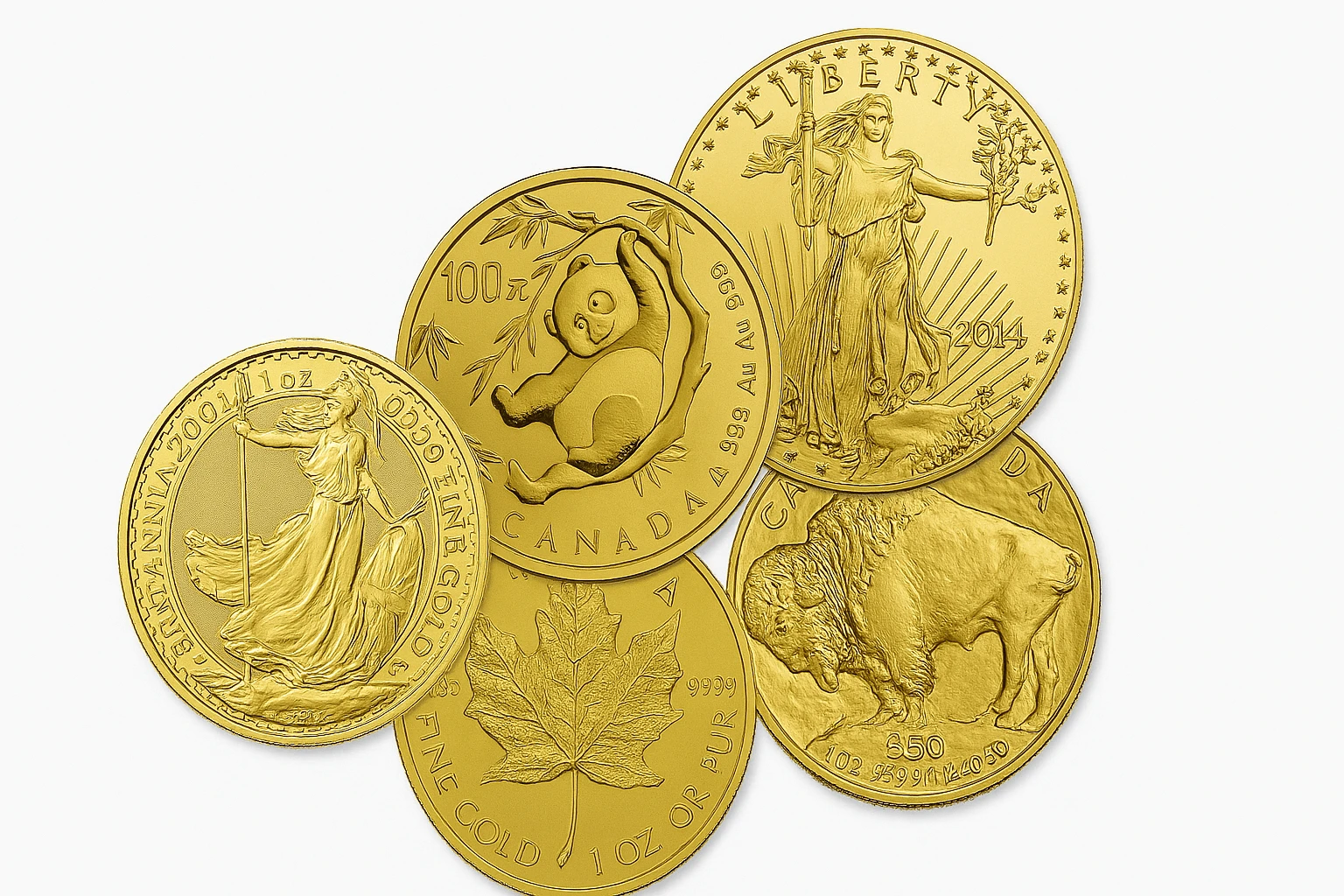
Gold bullion is a popular investment option that hedges against financial risk and market instability. It refers to the physical form of high-purity gold, typically in the form of bars and coins. Due to its historical store of value and price stability, gold bullion is considered a safe investment vehicle.
However, many pitfalls in gold investment should be avoided at all costs to maintain a profitable portfolio. In this blog, we will discuss the mistakes made by new and experienced buyers when buying gold bullion and share practical tips to avoid them.
Not Understanding the Different Types of Gold Bullion
Gold bullion is available in multiple forms, each with its own unique benefits and shortcomings. Factors like size, liquidity, premiums, resale value, and purity percentage differ for different bullion types.
Gold Bars vs. Gold Coins
Gold bars have lower premiums over spot prices compared to coins. They come in a variety of sizes, from a gram to a kilogram, which makes bulk investment easy. Hence, bars are preferred by investors who are interested in holding large amounts of gold for a long time.
On the other hand, gold coins are more liquid due to their smaller size, making them preferable for frequent trading. Coins like the American Gold Eagle, Canadian Gold Maple Leaf, and other antique coins also hold historical value, making them appealing to collectors and investors alike.
Government-Minted vs. Private-Minted Bullion
Government-minted bullion comes with added security and trust factor. They ensure market acceptance and hassle-free exchanges even under time constraints. Private mints often offer unique designs and lower premiums, but they lack the same level of recognition and trust that government-minted coins provide, making resale slightly more challenging. Investors also need to verify the reputation of private mints by themselves, increasing the hassle of purchasing.
Purity and Weight Considerations
Gold purity is measured in karats, with 24K being 99.99% pure gold. Other metals are added to increase the durability of pieces, but reduce the karat value. Also, the weight of gold bullion is measured in troy ounces (31.1035 grams per troy ounce), which differs from the standard ounce (28.35 grams per ounce). Understanding these concepts and conversion formulas is key to evaluating bullion prices in the market. While purchasing gold bullion, you should calculate the “per karat per troy ounce” value of each offer to find the best deal.
Ignoring the Premiums Over Spot Price
The spot price is fixed at a given time and place. Whereas, the premium is the additional charge that decides the final price for bullion and it is volatile. Hence, it is crucial to factor in the premium before deciding to buy. In addition, compare the spot prices that are posted on big online retailers and you will notice that they add an artificial increase in their posted spot price.
What is a Premium and Why Does it Matter?
Premium is the additional cost over the spot price, which includes minting and distributing charges along with the dealer’s margins. Based on the service and trust factor provided by the dealer, premiums vary widely. Hence, they can significantly change the final price you pay for gold bullion.
Comparing Dealer Markups
Dealer markups are based on multiple factors, including supply and demand, actual cost of processing, and brand value. To avoid overpaying for gold bullion, you should compare multiple dealers using multiple sources before deciding on one.
Why the Cheapest Option Isn’t Always the Best
Cheap premiums might be luring, but they come with a lack of authenticity, quality, and guarantee of the bullion. There is a chance of counterfeit risks and fraud. When investing in precious metals, you should prefer an established reputation, clear pricing structure, authentication, and security guarantee over discounts and cheap deals.
Buying from Unverified or Unreliable Sources
Gold bullion purchase is a major investment, and if not done correctly, it can lead to substantial losses. When choosing where to purchase from, online or in person, you should be mindful of key warning signs and positive indicators.
The Risks of Online Marketplaces and Private Sellers
Purchasing online and from private sellers can come with perks like assisted navigation and better premiums, but they also pose counterfeit concerns and a lack of authentication. They often lack quality control and persistence in delivery, resulting in underweight gold with a lack of security and trust value.
Importance of Buying from a Reputable Dealer
A reputable dealer will have a transparent pricing system, authentic certificates, and market trust. They will also provide industry-backed quality assurance and security. In short, working with an established gold bullion seller ensures a smooth trading experience.
Checking for Certifications and Reviews
To verify a dealer’s credentials, you should check for third-party reviews and industry certifications. Ensuring legitimacy before making a purchase is paramount.
Overlooking Storage and Security Considerations
Secure storage is essential in cases of physical investment like that of gold bullion. You should rely on the best storage facility possible to avoid mishappenings.
Home Storage vs. Secure Vault Storage
Keeping gold investments at home is easy and convenient, but it poses a risk of theft, robbery, fire, and chemical damage. It is also a source of worry that will keep you up at night. Professional vault storage provides insured protection and thus is a great way to keep your bullion safe.
Best Practices for Safeguarding Gold Bullion
The best way to safeguard gold bullion is to keep it in a top-quality safe or private depository that comes with insurance. A fireproof and waterproof safe that comes with biometrically authenticated accessibility will give you peace of mind regarding your gold holdings.
Why Accessibility Matters
Gold investments must be kept liquid in cases of unforeseen emergencies and rapid liquidation needs. You should be able to retrieve your assets without excessive delays or penalties.
All in all, storage methods must keep the investments protected while also providing good accessibility.
Not Considering Liquidity When Buying

As we discussed, for gold investments to come in handy in times of need, pre-planning regarding the liquidity of gold bullion is necessary.
Choosing the Right Size for Easy Resale
Smaller denominations may be more practical when it comes to liquidation. You can sell them individually or in bulk for cash without the hassle of dividing a big bullion. Larger gold bars are harder to sell due to their high price points and limited potential buyer range. Smaller bullion, such as one-ounce coins, is more liquid and easier to trade in smaller transactions.
Understanding the Secondary Market
The type of bullion owned and its market demand at the time decide its value during reselling. The brand value of mints and dealers comes into play here. The higher the recognition and trust value, the higher the demand.
Avoid Collectible Coins Unless You're a Numismatist
In addition to the innate value of gold pieces and the recognition of their mint, the historic value of the bullion, especially coins also helps in raising its demand and hence its price among numismatists. However, numismatic premiums are not ideal for investors. They are higher due to the rarity of the piece rather than the gold content. Unless you’re a numismatist and you understand the ins and outs of the market, you shouldn’t deal with collectibles as their value is largely dependent on collectors' sentiments.
Failing to Verify Authenticity and Purity
Verifying the authenticity and purity of gold bullion can seem intimidating. But it all boils down to a few signs that you need to take care of.
How to Spot Fake Gold Bullion
Scammers often use gold-plated tungsten or inaccurate weight measurements to deceive buyers. Poor engraving details, incorrect weight, and unusual magnetic properties also indicate fraud. However, picking up these signs can be hard for a non-professional. Reputable gold dealers do authenticity tests, such as weighing, magnetism tests, and density measurements, and provide proof of these tests to you, ensuring your trust and peace of mind.
Testing Methods for Gold Purity
Some sophisticated techniques used to determine the purity of gold are X-ray fluorescence (XRF) analysis and ultrasonic inspection, which can detect the metal content without destroying the bullion. Acid testing and professional assaying are also deployed for verifying gold authenticity.
Why Dealer Buyback Policies Matter
Some reputable dealers also offer buyback programs, ensuring investors can easily resell their gold at competitive prices without the hassle of finding new buyers. This guarantees a good resale experience through reputable channels.
Not Factoring in Taxes and Legal Considerations
It is essential to consider the legal landscape of the land while investing. Understanding the tax laws beforehand can help you save unforeseen expenses during trading.
Understanding Capital Gains Tax on Gold
Gold investments are subject to capital gains tax upon resale. Taxation varies by region and jurisdiction, and taxpayers need to get advice from financial experts on tax-efficient strategies to help them cut expenses.
Sales Tax and Reporting Requirements
Some states add sales tax to gold purchases, and bigger deals might need government reports. Having an idea about these rules helps investors stay compliant and avoid unnecessary penalties.
Holding Periods and Tax-Advantaged Accounts
There are many legitimate strategies for minimizing tax liabilities. Tax-preferred accounts such as Gold IRAs enable investors to possess physical gold while postponing or avoiding tax payments. These possible tax advantages are based on investors' contributions and withdrawals.
You can thereby use this information to optimize returns while ensuring tax compliance.
Where to Buy Safe and Authentic Gold Bullion
 When purchasing gold bullion, ensuring authenticity and security is crucial. Many buyers fall into common pitfalls — overpaying due to hidden fees, buying from unverified sources, or failing to verify the metal’s purity. To avoid these mistakes, always choose a reputable dealer with transparent pricing, proper certification, and a proven track record.
When purchasing gold bullion, ensuring authenticity and security is crucial. Many buyers fall into common pitfalls — overpaying due to hidden fees, buying from unverified sources, or failing to verify the metal’s purity. To avoid these mistakes, always choose a reputable dealer with transparent pricing, proper certification, and a proven track record.
Pacific Precious Metals offers a safe and reliable way to buy gold bullion, providing professionally authenticated products and competitive, market-based pricing. Whether you're a first-time investor or a seasoned buyer, their expert team ensures a seamless purchasing experience with no hidden costs or uncertainty. Visit Pacific Precious Metals today to invest with confidence.










